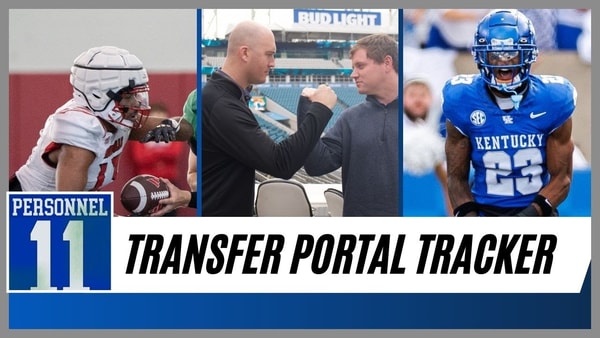University of Kentucky Making a Mistake in Withholding Information on Dismissed Professor

Anyone who is a regular reader of this website or listener to my radio show has heard me criticize the University of Louisville regularly for the past year due to the corruption that has occurred throughout their administration. Under the leadership of now-departed (sort of) President Ramsey, UL was accused of numerous, at best questionable and at worst illegal, acts over the course of the last year. The scandal built over the past nine months and has culminated in his departure. Throughout this controversy, my opinion has been very consistent. While the various acts around the University were all bad in and of themselves, I was particularly appalled at the way Ramsey and the University leadership continually attempted to cover up the worst misdeeds and members of the Louisville media (especially the city’s newspaper) often acted complicit by looking the other way as scandal after scandal occurred under their watch. As is often the case, for me it wasn’t just about the acts, it was also about the coverup.
With that in mind, I can’t help but be disappointed at the news from this week that the University of Kentucky has appealed a decision of the Kentucky Attorney General requiring it to disclose its records concerning the dismissal of Professor James Harwood. The facts of this case are somewhat complicated, but can be read in their entirety in this story by the UK student newspaper, The Kentucky Kernel. The short summary is that five different students accused Harwood of sexual assault and harassment in a series of events that spanned over the course of three school years. While the claims were brought separately, they culminated in an investigation by the University that determined a “reasonable person could believe the alleged behavior occurred.” Harwood was then due a hearing before a University Board on the issues, but instead chose to resign pursuant to the applicable provisions of Title IX. Those provisions, created by federal law, are complex and somewhat inconsistent in their goals, but they do allow a resignation prior to a hearing…an ending that can dissolve the accused’s case but do so before a true resolution as to what happened is reached. Victims don’t have the ability to appeal such a decision and it can allow the person who resigns the ability to work at another institution, without a final ruling on the merits of the case.
Two of the victims in the case were upset with this result and reached out to the Kentucky Kernel in order to try to shed light on what happened. The Kernel asked for records of the investigation and UK balked, saying that it would not turn them over due to concerns about the victims’ privacy. After doing a thorough and impressive investigation, the Kernel asked the AG to make a ruling on whether it was entitled to the records and the Office determined they must be turned over, with the names of the victims redacted. UK is appealing this decision, and the process of appeal is such that they are technically having to sue the student newspaper procedurally in order for it to take place. This has caused a great deal of controversy, leading to most of the state’s media outlets complaining about the lack of transparency at UK and the University suing its own student newspaper in the process.
I have watched all of this from afar and as with most controversies, I do believe it is more complicated than it is often portrayed. On the one hand, I completely understand the argument of the Kernel and the victims it says it represents (I am assuming for purposes of this column that the desires of the victims that the Kernel suggest represent their true feelings). When a public University professor commits such acts, it has an impact not only on those in question but potentially other, unnamed victims. It is important for the University’s faculty and students to know what happened, how the University handled it, what the University knew and when it knew it and other details about these complaints. Such transparency is important even beyond the acts currently in questioned. If Harwood was allowed to continue teaching after these incidents came to light, people need to know why and how that determination was made. And a complete understanding of what occurred will also help any future University (and their students) determine whether he should be allowed to be on their faculty in the years to come.
It seems, the University’s argument in response is to say that because Harwood taught such a small group of students in the Entomology Graduate Department, if they release the information in their records, those around that Department could figure out who the students were, thus invading their privacy. The University then could argue that this could have a chilling effect on future victims who believe that if they are in a small group in the future and are victimized, then such record releases would still have the effect of ID’ing them even after the redaction. The University thus believes it needs to appeal the AG’s decision (which requires them to sue the Kernel…but its not really “suing” them, it is just the procedure for the appeal), not so much for this case, but for the future. The University has to consider the presidential effect of its decision going forward when cases may not be as clear-cut.
Still, while I understand the theory behind the University’s argument, I believe UK is still making a mistake. If you believe the Kernel’s reporting (and the University has not disputed it publicly), the victims themselves want this information released. Not only do they believe it is important that the information be released about Harwood, but the University’s worries about privacy in this case are ultimately meaningless since virtually all the relevant facts are already out. To put another way, for the very few people who might be able to figure out who are the people involved, enough exists for that to already take place. If the University is worried about the effect on future cases, then release with a statement that it is only putting the information out here BECAUSE it is requested by the victims. Then if a future victim takes a different stance, it can be dealt with in a different manner. This can deal with future privacy concerns while also respecting what are crucial goals of the release, evaluating what took place and the ultimate response of the University. Faculty, students and the general public have a right to determine if the situation was handled with the best interest of everyone involved. A release of the records can allow such an evaluation to take place.
I will freely admit that I know nothing more about the Harwood case than what the Kernel has reported. I find it difficult to believe that UK, a University that is one of the only colleges in America to voluntarily release annual complete data of sexual assault/harassment reports on its campus, and President Capiluoto sought to downplay the allegations and protect Harwood. But I can’t know that for certain unless the records of the investigation are released. If we are going to claim (correctly) that President Ramsey’s continued attempts to cover up his University of Scandal over the last few years have been unacceptable, then the same level of scrutiny must also occur at the top of Kentucky’s leadership as well. What the Kernel asks for in this case is not only reasonable, as determined by the AG’s office, it is required by law. UK should do what is right here and release the records and help the victims and the University get the resolution they deserve.








Discuss This Article
Comments have moved.
Join the conversation and talk about this article and all things Kentucky Sports in the new KSR Message Board.
KSBoard